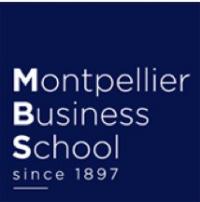Summer School
Entrepreneurship is not only about setting up a company. Whether in your academic or professional life, occasions are countless where you can invest your projects with passion, discover the power of positive thinking, show your leadership and fulfill your ambitions.
DESIGN THINKING – CREATIVITY & ENTREPRENEURSHIP
(15 hours of class)
Design thinking can be described as a discipline that uses the designer’s sensibility and methods to match people’s needs with what is technologically feasible and what a viable business strategy can convert into customer value and market opportunity.
Tim BROWN CEO, IDEO
Design thinking is a methodology used by designers to solve complex design problems.
The approach has been used more broadly and has been applied in business and to social issues.
Design thinking relies on logic, imagination, intuition, and systemic reasoning, to explore possibilities and to create desired outcomes that benefit the end user (the customer). Design thinking is most of all human-centered.
The main objective of this course is to explore the different dimensions of the design thinking process and apply it to business and managerial issues.
The intent of the course is to provide students with the tools and techniques that will help them define and solve managerial issues in a creative fashion.
DIGITAL BUSINESS MODEL
(15 hours of class)
Information technology is revolutionizing products. Once composed solely of mechanical and electrical parts, products have become complex systems that combine hardware, sensors, data storage, microprocessors, software, and connectivity in myriad ways. These «smart, connected products” –made possible by vast improvements in processing power and device miniaturization and by the network benefits of ubiquitous wireless connectivity –have unleashed a new era of competition.
Michael PORTER, Harvard Business Review, 2014
Facebook, AirBnB, Tesla, Amazon, Uber, Linkedln… In a few years, these companies have changed the face, the pace and the foundations of the global economy. They were able to design or redesign their business model so that to embrace with success the new paradigme of the digital age. In the meantime, the digital revolution allowed for hundreds of thousands of start-ups to be created and to disrupt old business models, sometimes beating well-established companies on their own ground.
The intent of the course is to provide students with key concepts and a clear understanding of the forces driving the digital age and their influences on business models. The approach will be derived from the business model canvas (Osterwalder, 2008) and the detailed analysis of some emblematic cases like Google, Amazon, Epost or Dawson.
MANAGING DIVERSITY
(15 hours of class)
Organizations become more open. Multicultural diversity of employees, managers, customers, providers and stakeholders is a direct consequence of this openness. It affects not only the employee’s work experience but also the organization process, performance, values and missions. Gender, citizenship, religion, age, social class, sexual orientation, culture, tradition are but many expressions of diversity. Understanding diversity through its multiple facets is essential to understand how an organization may create a set of rules or routines for behaviors to become acceptable and responsible.
The aim of the course is to expose students to diversity and raise their awareness of the challenges, the issues and the opportunities associated with the sound and smart management of diversity. The course emphasizes the definition of diversity and the identification of the main components of diversity challenges. The ultimate goal is to ensure that students develop pertinent cross-cultural intellectual understanding as well as cross-cultural management skills.
Upon completion of this course, students will be able to:
- Understand their relation to diversity and the people around them
- Demonstrate an awareness of diversity and their understanding of practices, actions and routines that may trigger a feeling of respect or disrespect of diversity
- Understand the implications of diversity on the philosophy, the values and the routines of an organization
- Understand the importance of creating a work environment where each and every one is valued
- Understand how the management of diversity can be a source of better performance
Throughout the programme, participants will interact in group projects and study cases, where they will apply and experiment the concepts developed in the three modules..
Intakes
- July
Application Processing Time in Days: 30
Minimum English Language Requirements
| English Level Description | IELTS (1.0 -9.0) | TOEFL IBT (0-120) | TOEFL CBT (0-300) | PTE (10-90) | |
|---|---|---|---|---|---|
| Expert | 9 | 120 | 297-300 | 86-90 | |
| Very Good | 8.5 | 115-119 | 280-293 | 83-86 | |
| Very Good | 8 | 110-114 | 270-280 | 79-83 | |
| Good | 7.5 | 102-109 | 253-267 | 73-79 | |
| Good | 7 | 94-101 | 240-253 | 65-73 | |
| Competent | 6.5 | 79-93 | 213-233 | 58-65 | |
| Competent | 6 | 60-78 | 170-210 | 50-58 | |
| Modest | 5.5 | 46-59 | 133-210 | 43-50 | |
| Modest | 5 | 35-45 | 107-133 | 36-43 | |
| Limited | 4 | 32-34 | 97-103 | 30-36 | |
| Extremely Limited | < 4 | < 31 | < 93 | < 30 |
- Course Type: Full Time
- Course Level: Short Courses and Summer Schools
- Duration: 21 Days
-
Total Tuition Fee:
2300 EUR
Annual Cost of Living: 7200 EUR
Application Fee: N/A

